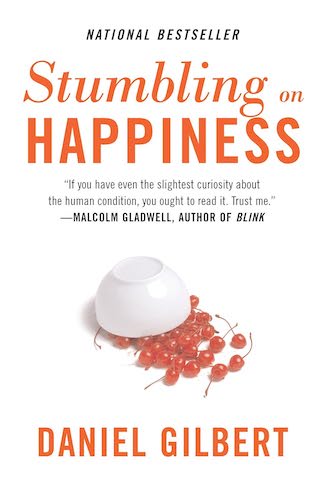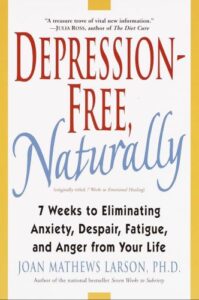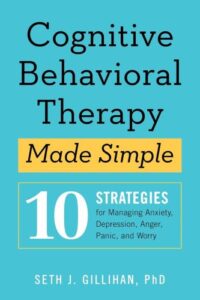Stumbling on Happiness
Book Author: Daniel Gilbert
Summary reviewed by:
Terrence Timmons
Terrence Timmons
Analyst
Bachelor of Arts (BA), University Of California, Santa Barbara 2019
With over 4 years of experience as an analyst. Terrence Timmons is committed to analyzing summaries without compromising on quality.
Stumbling on Happiness: Summary
"Stumbling on Happiness" isn't just a book; it's a revelation that challenges the conventional wisdom about joy and contentment. Daniel Gilbert, a professor of psychology at Harvard University, embarks on a fascinating journey to explore the nature of happiness, how we perceive it, and why we often fail to achieve it. Gilbert's expertise in psychology and cognitive neuroscience grounds the book in solid research, making complex concepts accessible and relatable.
At its core, the book asserts that our understanding of happiness is flawed because our ability to imagine the future, which we often rely on to predict our happiness, is imperfect. Gilbert presents a compelling argument, supported by psychological studies and neuroscientific research, that our imaginations and memories are subject to biases that systematically skew our perceptions of happiness. The book meticulously unpacks these biases, such as the impact bias, which leads us to overestimate the emotional effects of future events, and the presentism bias, which causes us to project current feelings onto the future.
Gilbert’s approach to personal development is grounded in understanding these cognitive biases and learning how to mitigate their effects. Rather than offering one-size-fits-all solutions, he suggests that a deeper understanding of how our brains perceive happiness can lead to more fulfilling and realistic expectations. He encourages readers to adopt strategies that enhance their ability to evaluate future happiness more accurately, such as seeking out diverse and objective experiences, and learning from the happiness outcomes of others.
The book guides the reader through practical steps to apply these strategies in daily life. For example, Gilbert discusses how keeping a journal of experiences and emotions can help in recognizing and adjusting for personal biases in happiness predictions. He also emphasizes the importance of external perspectives, suggesting that consulting with friends or experts can provide more objective insights into what might truly make us happy.
"Stumbling on Happiness" is not just an exploration of the human psyche but a guide to navigating the complexities of joy, satisfaction, and contentment. It stands out by not only identifying the problems in our common understanding of happiness but also by offering a path to overcome these challenges. Gilbert's engaging writing style, filled with wit and insight, makes the scientific exploration of happiness both enlightening and enjoyable, ensuring that readers are not just informed but are also equipped to actively improve their pursuit of happiness.
Stumbling on Happiness: Genres
Non-fiction
Psychology
Self-Help
Popular Science
Behavioral Economics
Personal Development
Stumbling on Happiness: Themes
Affective Forecasting: The book discusses how people are notoriously poor at predicting their future emotional states. We often miscalculate the impact of events, both good and bad, on our happiness.
Adaptation: Humans adapt quickly to new situations. This affects how long-lasting the emotional impact of “happy” or “unhappy” events will be. Your joy over a raise or sorrow from a breakup dissipate more quickly than you’d think.
Psychological Immune System: This is the mental mechanism that helps you rationalize or reframe situations to make them more palatable, softening the emotional blow of negative experiences.
The Power of Perception: Our memories and current circumstances heavily bias our predictions about our future emotional state. Our minds selectively remember and imagine, corrupting our emotional forecasts.
Social Comparison: The book examines how people use others as a yardstick for evaluating their own wellbeing, a method that is inherently flawed due to everyone’s unique emotional makeup.
Reality vs. Expectation: There is a constant tug-of-war between what we expect will make us happy and the actual experiences that do. The book suggests that a key to happiness may lie in understanding this disconnect.
Stumbling on Happiness: Methodology
In synthesizing "Stumbling on Happiness," we zeroed in on the essence of Daniel Gilbert's insights, ensuring that our summary reflected the book's nuanced exploration of happiness and cognitive biases. Expert analysis was pivotal, drawing from our team's deep understanding of psychology and literature to unpack the book's core arguments about perception and misjudgment. Emphasizing practical application, we highlighted Gilbert's strategies for improving happiness predictions, making the book's wisdom actionable for you, our reader. This approach ensured that our summary was not just accurate and comprehensive, but also immediately useful, bridging theory with real-life relevance.


Stumbling on Happiness
Date Published: 2006
Disclaimer: As an Amazon Associate I earn from qualifying purchases.




